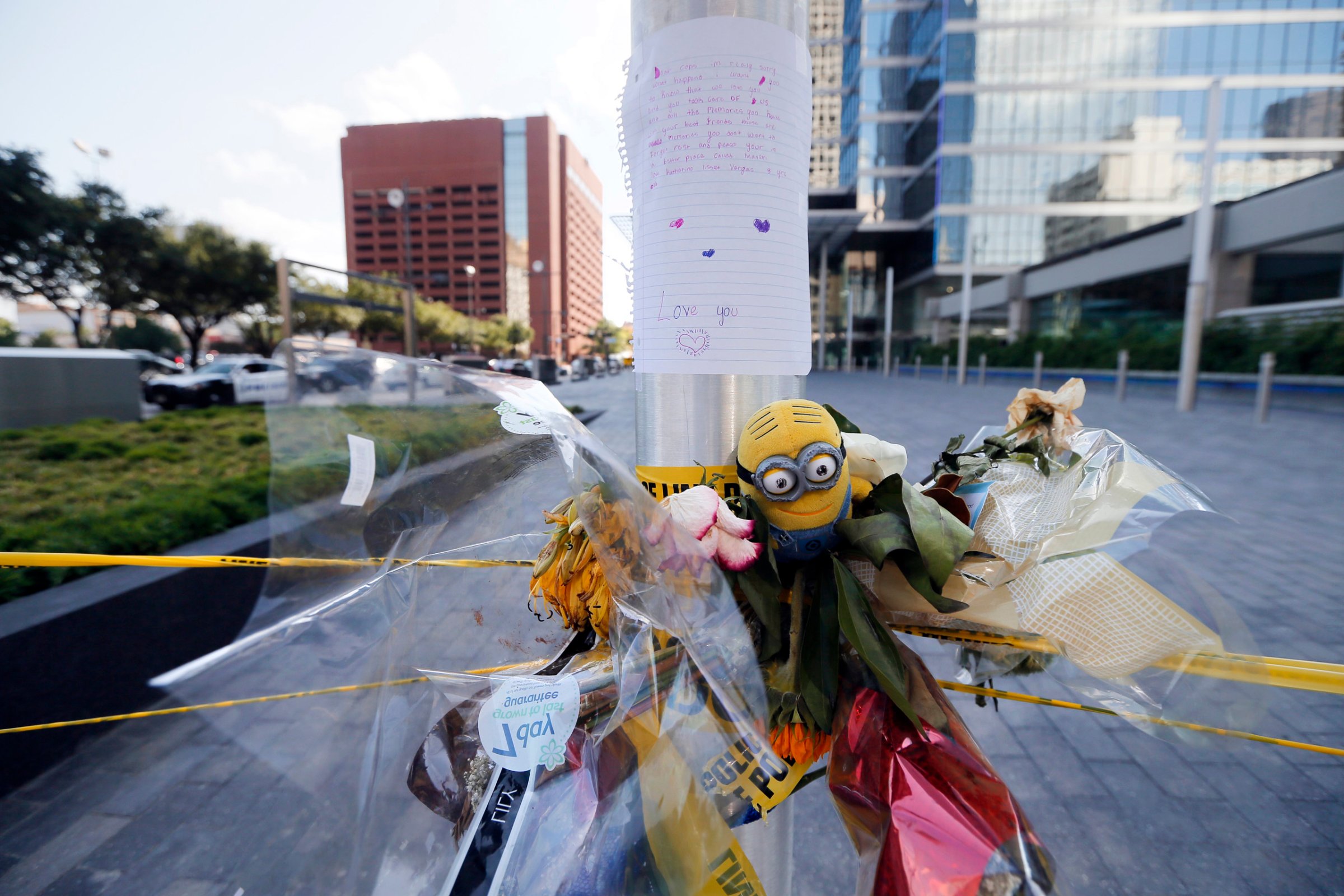
All of us living in Dallas were shaken to the core last week. As a mother and specialist in social emotional health, I know that right now, children around the country are trying to make sense of the events—the deaths of five police officers in Texas and the deaths of Alton Sterling in Louisiana and Philando Castile in Minnesota. The most important thing parents can do is help their children form a coherent narrative—a story that makes sense. Humans are meaning-makers, and it is in making meaning that we find a way forward.
I am a white mom who doesn’t work in law enforcement. My feelings and concerns don’t even begin to capture the complexities many people are facing. But I do know that our children need certain things in order to enjoy the sense of safety their brain requires to learn, grow and build relationships. Here are 10 things you can do to help your children right now.
1. Tell them they are not alone.
You can say: “I am here for you and always will be. You have a long list of people who care about you and are always going to make sure you are OK.”
2. Check-in. Check-in again.
Ask them: “What are you hearing and what do you think? What do your friends think? Is there anything you’ve noticed that you wish I understood?”
3. Listen.
Remind them: “You can ask or tell me anything. Don’t hold something inside that is worrying you.”
For kids who struggle to communicate, put them in the role of consultant by saying something like: “I know a kid who is feeling really worried. What advice should I give her parents?”
4. Share your values and cultivate a sense of belonging.
Tell them what your family believes and acknowledge that they probably have friends who see things differently. Reassure them: “We also believe in respecting differences and are always here as you figure out what you believe.”
5. Prioritize compassion and empathy.
Say to them: “Think about how others see things and how they feel. If I see someone doing something that confuses me or angers me, I ask myself, ‘What might she have been thinking?’ And I wonder, with compassion and empathy, what else might be going on in her life.”
6. Beware of fear-based thinking.
Advise them to notice anyone who says something about a whole group of people and tell them to question such thinking. “Think about how that divides us.”
7. Reject hate and violence.
Tell them: “It’s important to stand up for what is right without making things worse. There is always a way that doesn’t involve hate or violence.”
8. Don’t minimize anxiety.
If your child is concerned, tell them: “Your feelings make sense to me. These are hard things to understand. How can I help you feel better? What worked last time you felt this worried?”
9. Remind them they can make a difference
Ask them: “What ideas do you have that would make a difference? Volunteer? Write a letter to decision makers? Raise money?”
10. Hold onto hope.
You can put recent events in a larger context by saying: “Things we can’t understand happen every day, but we hold hope, believe in love and bring good into this world with everything we say and do. When so much is out of our control, this never is. I love you, and this world needs your light.”
Every child is different, and anything we do has to align with the child’s temperament and developmental stage. Each parent knows their child best and will know what might escalate things or bring comfort. That said, I hope we won’t take this responsibility lightly. Our children are the beings who will inherit our choices—may we be wise in helping them make meaning.
More Must-Reads from TIME
- Donald Trump Is TIME's 2024 Person of the Year
- Why We Chose Trump as Person of the Year
- Is Intermittent Fasting Good or Bad for You?
- The 100 Must-Read Books of 2024
- The 20 Best Christmas TV Episodes
- Column: If Optimism Feels Ridiculous Now, Try Hope
- The Future of Climate Action Is Trade Policy
- Merle Bombardieri Is Helping People Make the Baby Decision
Contact us at letters@time.com